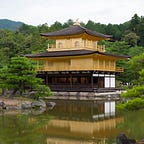WORLD ORDER
The Unique Group Captivating the World with Suits, Glasses, and Bowing
by IGNITION Staff
WORLD ORDER is a seven-man music and dance group, lead by former wrestler and mixed martial-arts fighter Genki Sudo. The group’s performances, in which they dance dressed in suits, are attracting attention worldwide. The unique nature and high quality of their work gives it a certain catchiness, making even one glimpse of a performance unforgettable.
Genki Sudo is a man who always had two dreams: to become a professional fighter and to become a performer. After an active career as a fighter he retired, and realized his second ambition by founding the performance troupe WORLD ORDER. When forming the group, Mr. Sudo had his eyes set on a global audience from the outset. Based on his experience living abroad, he had the idea of incorporating elements of uniquely Japanese subcultures into the group’s performances (through clothing etc.) as a way to help them gain popularity overseas.
Genki Sudo was conscious of the image of Japanese people that exists abroad. He picked out elements that are perceived as distinctively Japanese characteristics, such as suits, glasses and bowing. By including the suits stereotypically worn by Japanese businessmen, along with a sense of diligence and politeness in our performances, he turned this somewhat distorted image of the Japanese to our advantage.
Mr. Sudo gives two main reasons for following this strategy. First, he wanted WORLD ORDER to be unparalleled among the constant stream of new bands that appear in the market. Second, while he was well-off both emotionally and materially, he wanted to bring forth his creative side. To achieve this, it was important that all the members of WORLD ORDER could support themselves through their involvement in the group alone. To that end, Mr. Sudo aimed to establish a distinctive style for the group.
Like Japanese mobile phones, the country’s music industry is said to suffer from “Galapagos Syndrome”. A term of Japanese origin, “Galapagos Syndrome” refers to an isolated, specialized development of a product or service also available worldwide. While this lead to Japanese phones being unsuccessful in the global market, WORLD ORDER exploited the “Galapogization” of Japanese music in their battle on the world stage. When expanding from a domestic to global market, products and services that have undergone “Galapogization” have the potential advantage of instantly becoming unique and original.
There is more to WORLD ORDER’s originality than simply being a group who dance robotically in suits. The direction and narrative of their performances also highlight the location of the performance. Taking their music videos as an example, WORLD ORDER incorporate a sense of everyday realism into their work to give the viewer a unique view of the world. In their videos, the members are surrounded by everyday scenes while performing. Surprised spectators can be seen looking at the group who have suddenly appeared in a crowded street, while cars drive on the road behind them as if nothing unusual is taking place. However, none of this is artificially staged.
While perfectly staged imagery makes an audience feel tense, works that include real scenes have a sense of warmth and familiarity that relaxes viewers. Combining contrasting imagery of perfectly staged performances with everyday scenes creates a sense of contrast. While this ‘gap’ emphasizes the staged performance, it also puts the viewers at a comfortable distance from the work, and gives WORLD ORDER’s work a certain addictive quality that has crossed borders and captivated people around the world.
(translation: Rebecca Bourke)
Originally published at ignition.co
